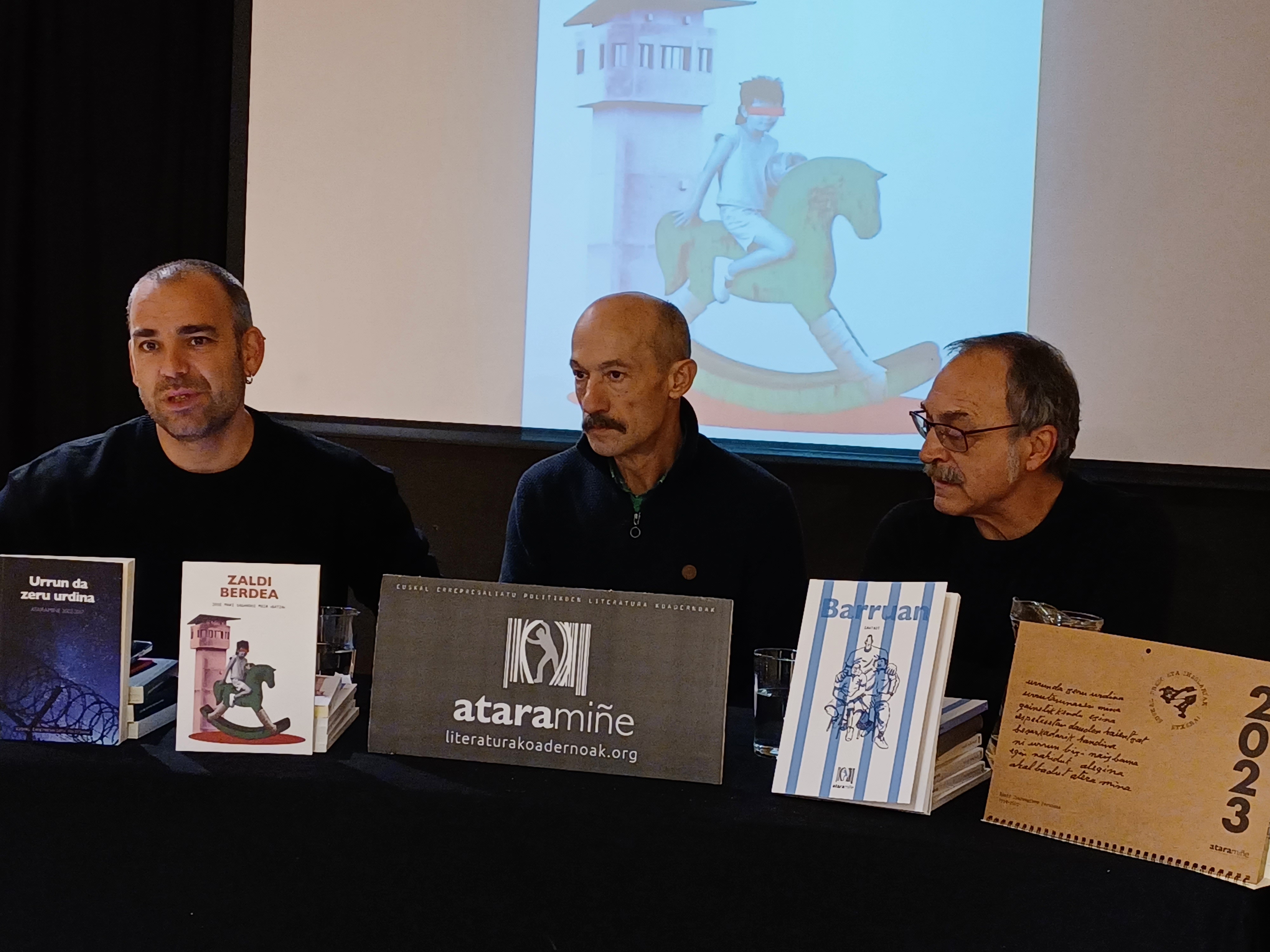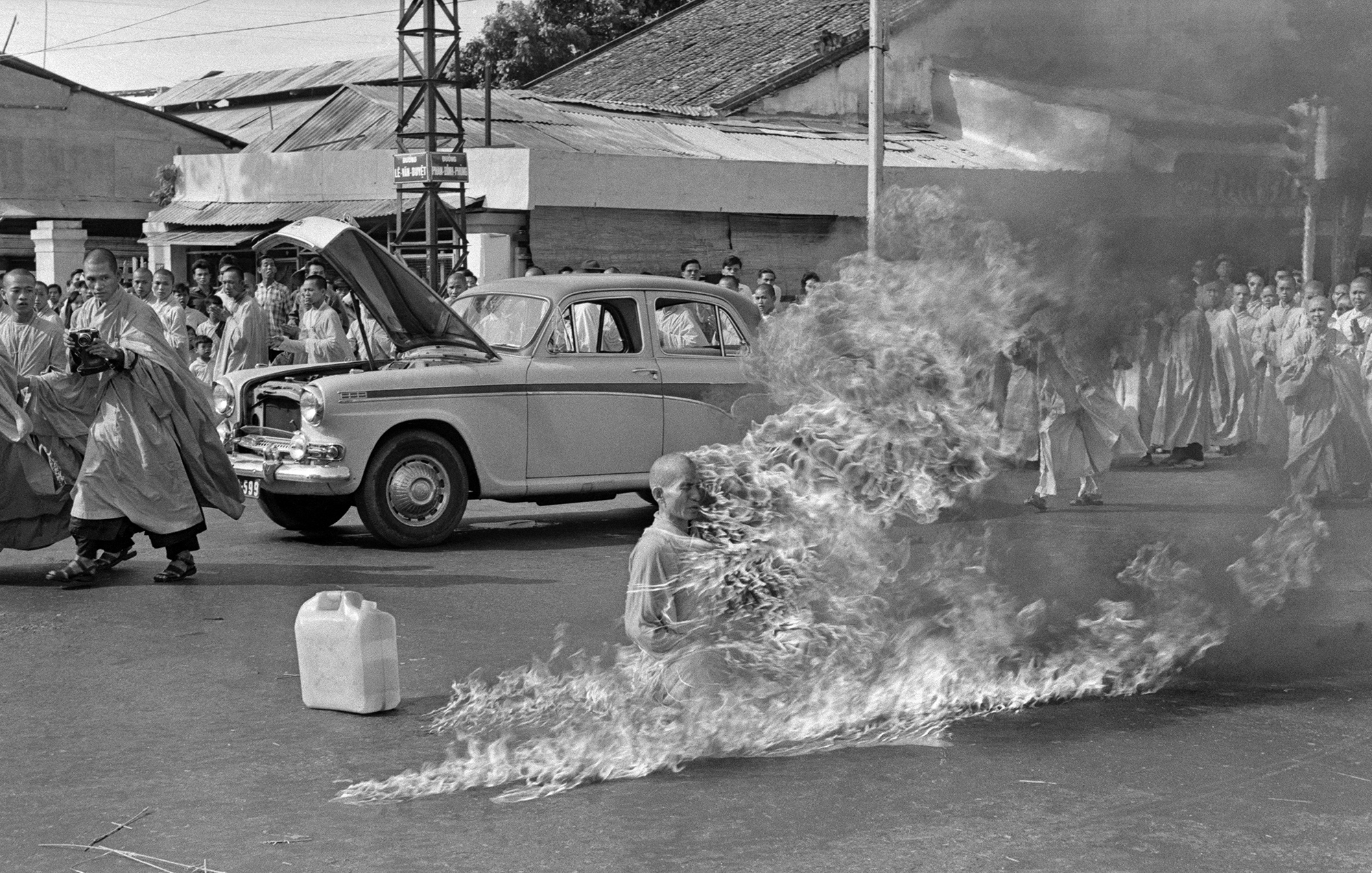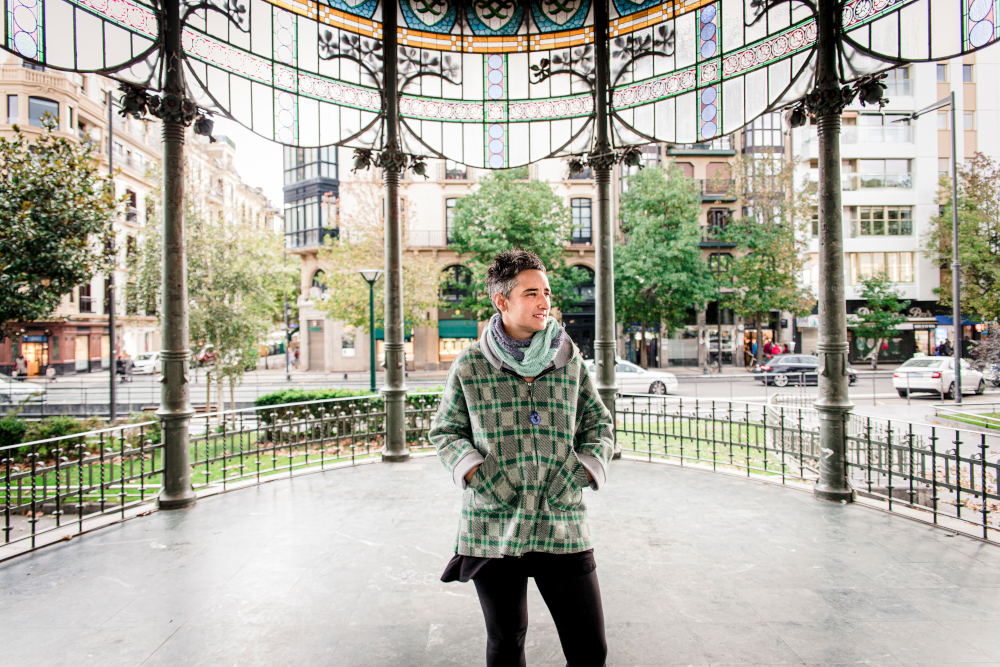Xanti Zapirain Dies, Historical Refugee and Writer
- On Wednesday, Antxeta Irratia reported the death of Xanti Zapirain Elizalde “Kaiku”. Born in Altza (Gipuzkoa) in 1953, at the age of 20, he fled the political persecution of Franco in Hendaia (Lapurdi) and became aware of the most agile aspects of refugee life. In addition to the author of the book Bizi behar dugu, he wrote numerous bertsos, he often worked as a storyteller and also as a blogger.

It was a question of survival. And when the question is to survive, the decisions that are made are radical. For example, to spend ten years without leaving the house. That was what Xanti Zapirain had to do in the toughest years of the GAL, when the attacks were plentiful and when the mere fact of going out into the street became the danger of dying for a Basque refugee.
“All of us militants are or have been afraid. What he says is not afraid... it is not possible,” he explained to ETB in a 2015 interview about his relationship with Angel Otaegi. To deal with this terror and the need to hide, paper and pen: it removed the concerns caused by the situation through the written bertsos. It was “a way to save oneself,” as Joxean Agirre explained in Bertsolari magazine.
In any case, Zapirain's relationship with Bertsolarism had been around for a long time. From the roots. Pio Pérez Aldasoro defined the members of the Zapirain family as “the dynasty of bertsolaris and bertsolaris” in the Joxe Zapirain study, published in 2013. The first bertsolari of the family was from the 19th century, Joxe Bixente Zapirain, and in the 20th century was followed by many other relatives, such as Salbador Zapirain Ataño, who left a lush literary work.
We have to live
Zapirain took a decision in 1987 that would mark an important part of his life: hiding to escape an atmosphere of persecution and death. Almost 20 years later he published the autobiographical book Bizi behar dugu (Txalaparta, 2005), in which he narrates the experiences of the ten years he spent without leaving the house, inviting him to enter the mind of someone who has been in such an extreme situation.
It was not the only job he wrote. On the network you can see, for example, the Martillún syndicate, Txurreroen enparantza, Ipuinen baratza, Bidea bizi or today's blogs on Martillun: memories, bertles, reflections, experiences with family and friends... Zapirain wrote in a transparent and vivid way about the fundamental aspects of life.
Euskal errefuxiatuei laguntzeko 1960ko hamarkada amaieran sorturiko Anai Artea elkartearen historia laburbiltzen duen liburua argitaratu du Elkarrek. Txomin Hiriart-Urrutyk egindako ikerketa da eta Joseba Sarrionaindiaren sar hitza ere badu. Liburuaren harira Juan Mari Arregik,... [+]
Asteartean jaso zuen Venezuelako Gobernuaren erabakia. Bere herritartasuna eta 13 urteko bere semearena onartzea eskatuz abiatu zuen gose greba mugagabea abenduaren 3an.
Venezuelan dagoen Asier Guridi Zaloña euskal iheslari politikoak abenduaren 3an gose greba abiatu duela jakinarazi du. Caracas hiriburuko Espainiako kontsuletxearen aurrean dago, bere eskubideak eta 13 urteko bere semearenak aitortuak izan daitezen eskatzeko. 2005ean... [+]






















